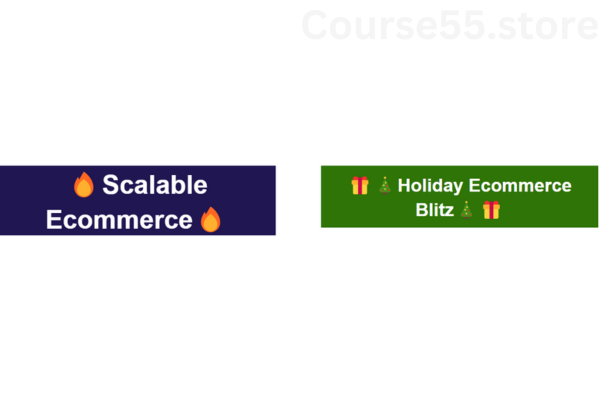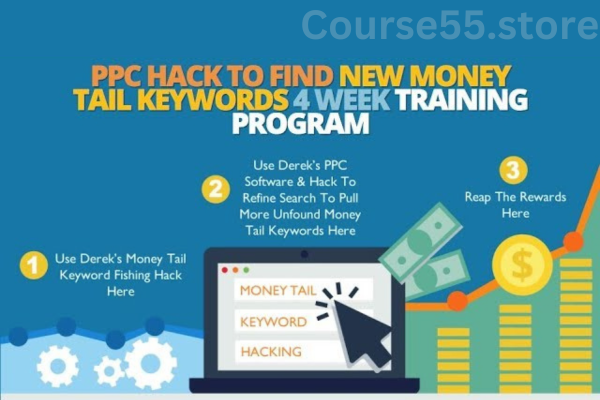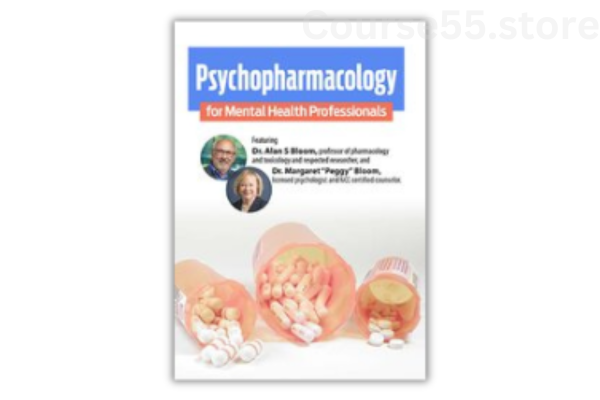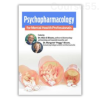-
×
 Divi Business Expert Course By Tim Strifler & David Blackmon - WPGears
1 × $23.10
Divi Business Expert Course By Tim Strifler & David Blackmon - WPGears
1 × $23.10 -
×
 Applied Wing Chun - Lesson 002 - Sil Lum Tao (Part 2) By Larry Saccoia
1 × $8.00
Applied Wing Chun - Lesson 002 - Sil Lum Tao (Part 2) By Larry Saccoia
1 × $8.00 -
×
 Voice Over Revolution By Bill DeWees
1 × $23.10
Voice Over Revolution By Bill DeWees
1 × $23.10 -
×
 NLP & Spirituality by Wyatt Woodsmall
1 × $23.10
NLP & Spirituality by Wyatt Woodsmall
1 × $23.10 -
×
 5-Step-Trading Stocks II - Avoid Common Trading Mistakes by Lex van Dam
1 × $23.10
5-Step-Trading Stocks II - Avoid Common Trading Mistakes by Lex van Dam
1 × $23.10 -
×
 How to Build an Engaging Facebook Messenger Bot That Converts Traffic Into Sales by Molly Pittman
1 × $23.10
How to Build an Engaging Facebook Messenger Bot That Converts Traffic Into Sales by Molly Pittman
1 × $23.10 -
×
 Scalable eCommerce + Holiday eCommerce Blitz by Robert Nava
1 × $23.10
Scalable eCommerce + Holiday eCommerce Blitz by Robert Nava
1 × $23.10 -
×
 The POD Master Class by Travis Petelle
1 × $23.10
The POD Master Class by Travis Petelle
1 × $23.10 -
×
 PPC Keywords - PPC 4SEO By Derek Booth - SEO Intelligence Agency
1 × $23.10
PPC Keywords - PPC 4SEO By Derek Booth - SEO Intelligence Agency
1 × $23.10
Psychopharmacology for Mental Health Professionals By Alan Bloom
$200.00 Original price was: $200.00.$23.10Current price is: $23.10.
SKU: C55store.5534BgFn56wW
Category: Download
Tags: Alan Bloom, Mental Health Professionals, Psychopharmacology
Psychopharmacology for Mental Health Professionals By Alan Bloom – Digital Download!
Content Proof:

Psychopharmacology for Mental Health Professionals By Alan Bloom
Overview:

Alan Bloom’s thorough review on psychopharmacology for mental health professionals
For those working in mental health care, it is essential to comprehend drug administration. Alan Bloom’s book “Psychopharmacology for Mental Health Professionals” is a priceless tool that explores the intricate realm of pharmacological therapies and gives mental health professionals the information they need to provide clients with appropriate care. For people who want to learn more about drug management and its biological foundations in mental disorders, the content has been carefully crafted. This book is revolutionary in the field of mental health treatment because of its central focus on fusing theoretical understanding with real-world applications.
The book’s framework includes a number of essential elements that are crucial for mental health practitioners. Every part is designed to cover the many facets of psychopharmacology while maintaining readability and clarity. The book thoroughly equips practitioners to traverse their duties with confidence and informed understanding by examining a number of important topics, including neurotransmitter systems, drug management, and ethical considerations.
Essential Information
The breadth of basic knowledge about pharmacology and how it relates to mental health is a pillar of the Psychopharmacology for Mental Health Professionals course. Critical ideas about neurotransmitter systems, which are important in the development of mental health issues, are introduced in this course. A thorough understanding of neuroanatomy and the main neurotransmitter systems lays the groundwork for comprehending how certain drugs affect these biological processes.
Moreover, this fundamental understanding is not just theoretical; it offers practical understandings of how drugs might change the chemistry of the brain to reduce mental health issues. Serotonin reuptake inhibitors, or SSRIs, for example, are frequently recommended to raise serotonin levels, which can elevate mood and lessen anxiety. By comprehending these mechanisms, mental health practitioners can better understand the effects of pharmaceutical use in clinical settings and steer toward more successful treatment strategies.
Combined Treatment Modalities
An essential feature of the book is the emphasis on combined treatment modalities, which underscores the importance of integrating psychotherapy with pharmacotherapy. The narrative highlights the critical role played by non-prescribing mental health professionals, such as psychologists and clinical social workers, who work with clients on psychiatric medications. This integration ensures a holistic approach to treatment, combining the benefits of therapy and medication for optimal client outcomes.
The book discusses how to effectively manage and monitor these combined effects. For instance, a mental health practitioner may encounter a client who is experiencing severe anxiety and is currently prescribed benzodiazepines. The practitioner can apply therapeutic techniques such as Cognitive Behavioral Therapy (CBT) to help the client better manage their anxiety while being aware of the potential sedation effects of benzodiazepines. This synergy between therapy and medication allows for comprehensive care and fosters improved patient engagement in their treatment journeys.
Details of Medication
Another important topic covered in Bloom’s book is in-depth understanding of the drugs used to treat different mental health conditions. A number of drug groups, such as antidepressants, antipsychotics, and drugs for anxiety and ADHD, are thoroughly covered in the course. The effectiveness of these drugs, their adverse effects, and clinical issues that mental health practitioners need to be aware of are covered in length in each area.
For example, the first-line treatment for anxiety and depression is selective serotonin reuptake inhibitors (SSRIs). Practitioners gain knowledge of the different SSRIs, how they work, and possible adverse effects like erectile dysfunction or gastrointestinal issues. Professionals may make well-informed decisions and guarantee that their patients receive medication that is appropriate for their specific requirements by being aware of these details.
Furthermore, by anticipating potential drug interactions, practitioners can improve treatment planning safety thanks to the thoroughness of this pharmaceutical overview. Such thorough understanding is essential for improving the therapeutic alliance between the client and the professional as well as for optimizing pharmacologic treatment.
Ethical Considerations
Integrating medication management in mental health treatment raises several ethical considerations, an essential theme elaborated upon in Bloom’s resource. The book encourages mental health professionals to engage in effective communication with both their clients and prescribing professionals. This dialogue is crucial as practitioners navigate complex treatment scenarios, ensuring that they provide optimal care while adhering to ethical standards.
For example, discussions around informed consent become paramount when clients are prescribed medications that may have significant side effects. Mental health professionals must ensure that clients fully understand the potential risks and benefits of their treatment options. By fostering an atmosphere of transparency, practitioners can build trust and facilitate better client engagement in their treatment plans.
The ethical discussions extend to treatment equity, as the book prompts professionals to consider issues of access and disparities in mental health treatment. Mental health professionals are encouraged to advocate for their clients, ensuring they receive the necessary support and resources to achieve successful treatment outcomes while navigating the often-challenging landscape of mental health care.
Applications in Clinical Practice
Using case studies and real-world situations, Alan Bloom’s course’s clinical applications component offers a hands-on approach to psychopharmacological expertise. By addressing the complications that emerge in client presentations, this element improves the clinician’s capacity to treat frequent comorbid conditions. Professionals can create useful therapies based on evidence-based methods by exploring topics including treatment-resistant illnesses, augmentation tactics, and suicide risk management.
Adding a low-dose atypical antipsychotic to a regular antidepressant prescription is one example of an augmentation strategy that can be demonstrated in a case study involving a client who has treatment-resistant depression. By practicing these scenarios, clinicians can improve client outcomes by learning how to handle complex cases efficiently. This practical approach is essential because it helps clinicians make well-informed decisions about treatment planning by bridging the gap between theory and actual practice.
Additionally, by concentrating on certain therapeutic situations, practitioners can improve their clinical reasoning and critical thinking abilities. Mental health practitioners can better understand the subtleties of difficult client presentations by looking at real-life situations, which results in more individualized and successful treatment plans.
Professional Perspective
The knowledgeable commentary offered throughout the course is one of Bloom’s strongest points. Alan S. Bloom and other seasoned pharmacology and psychology specialists contribute viewpoints from their vast therapeutic backgrounds, enhancing the material with useful information and useful abilities. Participants are able to utilize theoretical ideas and apply them in practical contexts thanks to this infusion of knowledge.
Bloom might, for example, relate stories from his professional experience that demonstrate how a deep comprehension of psychopharmacology has directly enhanced client outcomes. These realizations foster a greater understanding of the comprehensive character of mental health care, highlighting the significance of combining pharmacological knowledge with psychotherapy techniques. As a result, professionals are learning new things and receiving insight from people who have dealt with the challenges of providing mental health care.
Additionally, this professional viewpoint encourages mental health practitioners to adopt a culture of lifelong learning. Practitioners are encouraged to stay up to date on psychopharmacology advancements and modify their practices to conform to evidence-based innovations by adopting the ideas outlined in this course.
Conclusion
In conclusion, “Psychopharmacology for Mental Health Professionals” by Alan Bloom serves as a vital educational resource for practitioners aiming to enhance their competency in pharmacological management within mental health care. By deeply exploring the interplay between medication management and therapy, the course equips professionals to deliver holistic and well-informed care. From foundational knowledge of neurotransmitter systems to navigating ethical complexities and clinical applications, Bloom’s work empowers mental health professionals to blend pharmacological insights with therapeutic practices effectively and ethically, thereby fostering improved outcomes for their clients in an ever-evolving landscape of mental health care.
Frequently Asked Questions:
Business Model Innovation: We use a group buying approach that enables users to split expenses and get discounted access to well-liked courses.
Despite worries regarding distribution strategies from content creators, this strategy helps people with low incomes.
Legal Aspects to Take into Account: Our operations’ legality entails several intricate considerations.
There are no explicit resale restrictions mentioned at the time of purchase, even though we do not have the course developers’ express consent to redistribute their content.
This uncertainty gives us the chance to offer reasonably priced instructional materials.
Quality Assurance: We guarantee that every course resource you buy is exactly the same as what the authors themselves are offering.
It’s crucial to realize, nevertheless, that we are not authorized suppliers. Therefore, the following are not included in our offerings:
– Live coaching sessions or calls with the course author.
– Entry to groups or portals that are only available to authors.
– Participation in closed forums.
– Straightforward email assistance from the writer or their group.
Our goal is to lower the barrier to education by providing these courses on our own, without the official channels’ premium services. We value your comprehension of our distinct methodology.
Be the first to review “Psychopharmacology for Mental Health Professionals By Alan Bloom” Cancel reply
You must be logged in to post a review.













Reviews
There are no reviews yet.